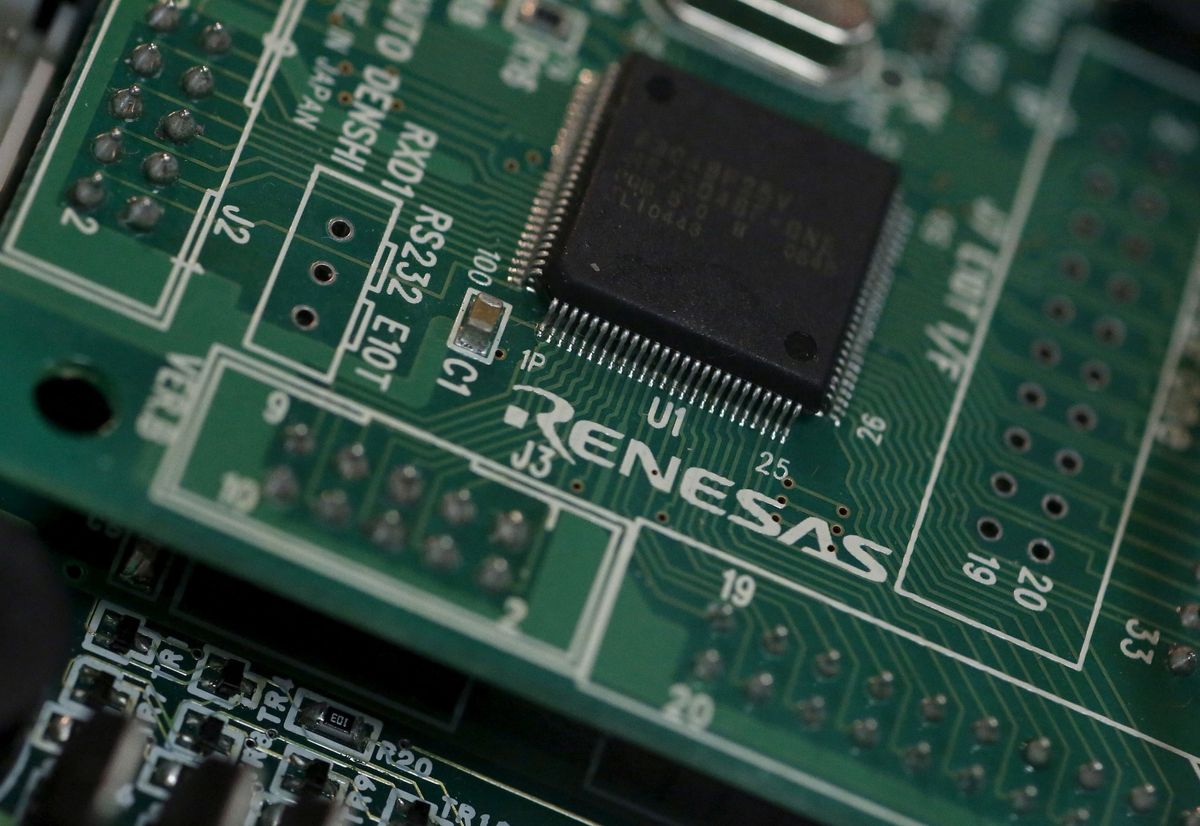Apple is seeing the effects of the global chip shortage

A few minutes every morning is all you need.
Stay up to date on the world's Headlines and Human Stories. It's fun, it's factual, it's fluff-free.
Semiconductors are really important for an increasingly digital and smart world, so much so that President Joe Biden’s US$2.25 infrastructure plan includes US$50 billion to support the nation’s semiconductor industry.
Why is there a chip shortage in the first place?
- There are several reasons why a global shortage of chips exists now. But the main reasons are because the electronics industry and car industry are both hoarding the supply.
- During lockdown, people hoarded electronics. But there was also a greater demand for cars than industry officials expected.
- Another reason is because of sanctions the United States put on large Chinese chip manufacturers such as Semiconductor Manufacturing International Corp. (SMIC), with concerns about the chips being used for military purposes.
- Chip manufacturers have a very complex manufacturing process and Chinese manufacturers are reliant on European and American suppliers to provide the tools and designs to create chips.
- Now the US requires suppliers to apply for licenses in order to export to SMIC. The US has also reportedly pressured European players to not assist China in producing better microprocessors.
- Now, every company that uses chips in their products is panic buying. This has put pressure on the supply, which is in turn driving up companies’ costs and, therefore, the cost of American goods.
How is Apple being affected by the shortage?
- Apple recently warned of a product shortage for updated MacBooks and iPad Pros, blaming the “semiconductor shortages” and “very, very high demand” for iPads and Macs during a phone call with Bloomberg analysts.
- Consumers can still go to the Apple store and purchase the MacBook and iPad Pro, but the cart shows a potential delivery date as far out as early July – nearly two months after ordering.
- Apple has also announced that the company would experience a US$4 billion loss because of the shortage in the third quarter of this year.
- Apple stated that part of the reason the company is predicting supply shortages in the current quarter is due to an increased demand for MacBooks and iPads. iPad sales were up 79% and Mac sales up 70% in the most recent quarter.
What has the manufacturing powerhouse TSMC said?
- Much of the world’s chip supply comes from Taiwan, with most of that coming from Taiwan Semiconductor Manufacturing Company (TSMC), which supplies tech companies such as Apple and Nvidia.
- In a letter, TSMC’s chief executive officer, C.C. Wei, explained that all the company’s plants have been operating at 100% capacity and have not been able to catch up with the rising global demand. “We ask for your patience as we expedite the building of new fabs and capacity,” he wrote.
- TSMC is now aggressively expanding, injecting US$28 billion for this year alone and has asked its clients to accept the higher prices right now as it adapts.
- But in a recent interview with CBS, TSMC’s charmain Mark Liu said that he believed “we can catch up to the minimum requirement of our customers before the end of June." But when asked whether that meant the chip shortage would also end then, he replied, “No.”
Where to from here?
- Semiconductors are really important for an increasingly digital and smart world, so much so that President Joe Biden’s US$2.25 infrastructure plan includes US$50 billion to support the nation’s semiconductor industry.
- China’s Tsinghua University has established a chip college to train semiconductor engineers to assist with the national goal of chip self-efficiency during the current global shortage.
- The US and China are the two largest semiconductor markets and account for half of the world’s consumption according to a Boston Consulting Group (BCG) and Semiconductor Industry Association (SIA) report.
- So, in order to ensure that the government’s relationship issues don’t affect their increasingly digitized citizens too much, both China and the US are rushing to protect this industry.
Have a tip or story? Get in touch with our reporters at tips@themilsource.com




Comments ()